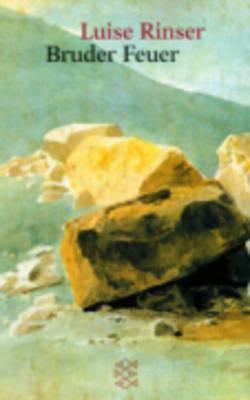
Luise Rinser (30 April 1911 in Pitzling, Landsberg am Lech, Upper Bavaria – 17 March 2002 in Unterhaching, Munich) was a German writer.
Luise Rinser was born on 30 April 1911 in Pitzling, a constituent community of Landsberg am Lech, in Upper Bavaria. Her birth house still exists. She was educated in a Volksschule in Munich, where she scored high marks on her exams. After the exams, she worked as an aide in various schools in Upper Bavaria, where she learned the reformed pedagogical style of Franz Seitz, who influenced her teaching and writing. During these years, she wrote her first short stories for the journal Herdfeuer. She refused to join the Nazi Party, but after 1936 belonged to the NS-Frauenschaft and until 1939 she also belonged to the Teacher's Association. In 1939, she resigned from teaching and was married. In 1944 she was denounced for undermining military morale, and imprisoned; the end of the war stopped the legal proceedings against her, which probably would have concluded with a death sentence. She described her experience in the Traunstein women's prison in her Prison Journals (Gefängnistagebuch) of 1946. She described herself in an ode to Adolf Hitler as opposed to the Nazis. Her first husband, and the father of both her sons, the composer and choir director Horst Günther Schnell, died on the Russian Front. Afterward, she married the communist writer Klaus Herrmann, but this marriage was annulled about 1952. From 1945 to 1953, she was a freelance writer for the New Daily News (Munich), and she established her residence in that city.
In 1954, she married the composer Carl Orff and they divorced in 1960. She formed a tight friendship with the Korean composer Isang Yun, with the abbot of a monastery, and with the theologian Karl Rahner. In 1959, she lived in Rome, and then in 1965 in Rocca di Papa, near Rome, where she was recognized as an honored resident in 1986. Afterward, she lived until her death at her apartment in Munich.
Rinser kept herself active in political and social discussions in Germany. She supported Willy Brandt in his 1971/72 campaign, and demonstrated with the writers Heinrich Böll, Günter Grass and many others against the retrofitting of Germany with Pershing rockets. She became a sharp critic of the Catholic Church, although she never left it and she was an accredited journalist at the Second Vatican Council. She also criticized, in open letters, the prosecution of Andreas Baader and Gudrun Ensslin, and others, and wrote to Ensslin's father: "Gudrun has a friend in me for life.". In 1972, she traveled to the Soviet Union, the USA Spain, India, Indonesia, South Korea, North Korea, and Iran – she saw the Revolutionary leader Ruhollah Khomeini as "a shining model for the states of the Third World." – Japan, Colombia and many other countries. She engaged herself for the abolition of the Abortion paragraph § 218 in its current form. She served as a leading voice for the Catholic Left in Germany.
In 1984, she was proposed by the Grünen as a candidate for the office of federal president.









